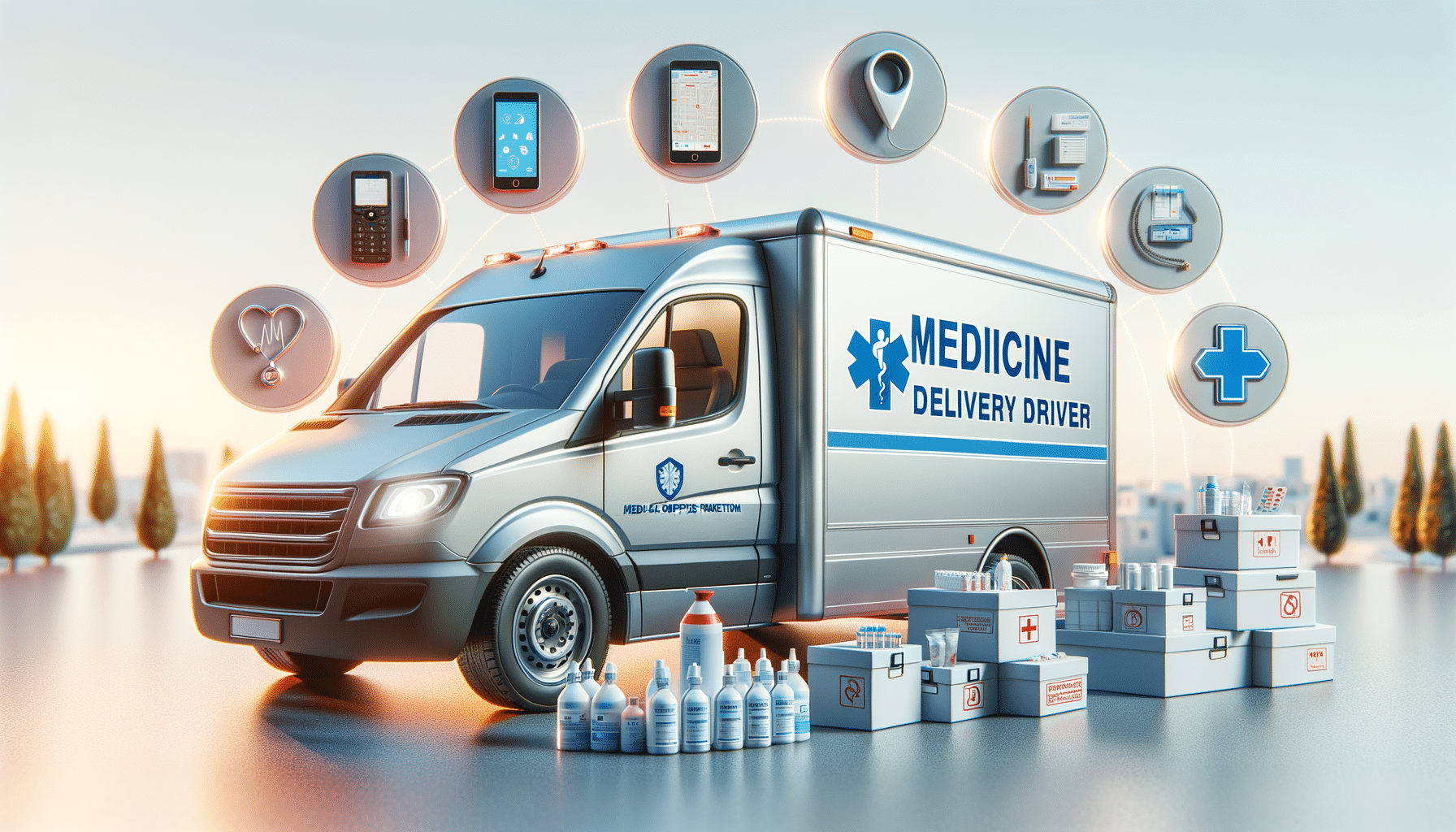
How to Become a Medicine Delivery Driver
Introduction to Medicine Delivery Drivers
In today’s fast-paced world, the role of medicine delivery drivers has become increasingly crucial. These professionals ensure that essential medications reach individuals in a timely and efficient manner, supporting the healthcare system by bridging the gap between pharmacies and patients. As the demand for home delivery services grows, so does the need for reliable and skilled drivers who can navigate routes effectively while maintaining the integrity of the medicines they transport.
Responsibilities and Skills Required
Medicine delivery drivers are tasked with several responsibilities that require a unique set of skills. Primarily, they must ensure the safe and timely delivery of medications, which involves understanding the importance of temperature control and handling sensitive materials with care. Key skills include:
- Organizational skills to manage delivery schedules and routes efficiently.
- Attention to detail to ensure accurate delivery of prescriptions.
- Familiarity with local routes and traffic patterns to optimize delivery times.
- Excellent communication skills to interact with pharmacy staff and customers.
- Basic knowledge of healthcare and the importance of timely medication delivery.
These skills are essential for maintaining the trust of both pharmacies and patients, ensuring that the delivery process is seamless and reliable.
Challenges Faced by Medicine Delivery Drivers
Like any profession, medicine delivery drivers face a set of challenges that can impact their daily operations. One significant challenge is navigating traffic and road conditions, which can vary greatly depending on the time of day and location. Additionally, drivers must handle the pressure of delivering medications within specific time frames, as delays can have serious implications for patients relying on their prescriptions.
Another challenge is ensuring the security and confidentiality of the medications being transported. Medicine delivery drivers must adhere to strict protocols to prevent any unauthorized access to the prescriptions, thus safeguarding patient privacy. Moreover, drivers often work independently, requiring them to be self-motivated and capable of problem-solving on the go.
Pathways to Becoming a Medicine Delivery Driver
For those interested in becoming a medicine delivery driver, there are several pathways to consider. Typically, a high school diploma or equivalent is required, along with a valid driver’s license. Some employers may prefer candidates with prior experience in delivery services or logistics, but many provide on-the-job training to help new drivers understand the specific requirements of transporting medications.
Additionally, prospective drivers should be prepared to undergo background checks and possess a clean driving record. Familiarity with GPS technology and route planning software can also be advantageous, as these tools are often used to enhance delivery efficiency.
By meeting these requirements and demonstrating a commitment to customer service and reliability, individuals can embark on a rewarding career as a medicine delivery driver.
Conclusion: The Impact of Medicine Delivery Drivers
Medicine delivery drivers play a vital role in the healthcare system by ensuring that patients receive their medications promptly and safely. Their work supports not only individual health outcomes but also the broader public health infrastructure by reducing the need for in-person pharmacy visits and enhancing access to essential medications.
As the demand for delivery services continues to grow, the importance of skilled and dedicated medicine delivery drivers becomes even more apparent. By understanding the responsibilities and challenges of this role, aspiring drivers can better prepare themselves for a career that makes a meaningful difference in people’s lives.


